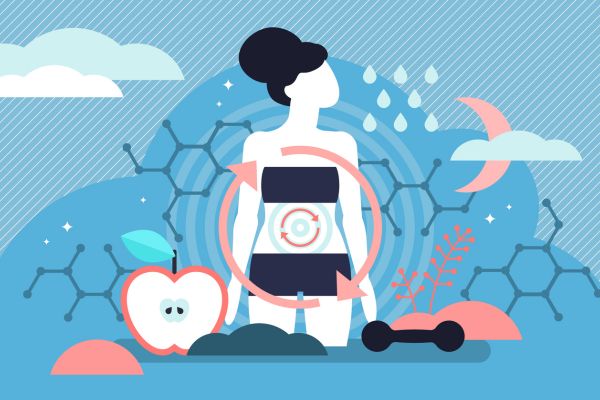
From the Desk of Carolyn Dean MD ND
One of the most frustrating things I’ve seen when searching online about sugar and behavior is that Google AI is telling people that there is no scientific evidence that sugar has any effect on children’s behavior. They say it’s a myth that there is any link between sugar and hyperactivity.
I imagine a parent who is sending their kid off to a birthday party, knowing that he’ll come back jacked up on sugar and food coloring because it’s happened every time they’ve gone to a party. The parent searches online only to find that it’s a myth that sugar and dyes cause any behavior changes. Period.
So, what’s the parent supposed to think when the child comes home and is bouncing off the walls, screeching and aggressive and hard to handle? The parent knows their child and sees the behavior change after every party, but they’re being told it’s erroneous to think sugar is the problem.
Parents! Sugar IS a problem.
What Dr. Google or an MD might say about sugar and behavior:
To repeat, Dr. Google succinctly says that sugar doesn’t have an impact on children’s behavior, hyperactivity, or their cognitive ability. They say that scientific evidence doesn’t support this common belief. In fact, Dr. Google would have us believe that children having a “sugar rush” after consuming sugar is what parents expect to see, so they see that behavior. So, Dr. Google wants you to believe that when you see hyper behavior in your sugar-laden child is all in your head. Your child is just excited or stimulated by their environment. I even read that some studies suggest that sugar may have a calming effect on children!
At the same time, an online search will show that each child may have a different experience with sugar; with some being more sensitive. But the overall tone is that it’s a myth to think that sugar affects your child’s behavior.
What I say about sugar and behavior
What I know about sugar and its effect on children’s behavior is information that’s never been allowed to make its way into mainstream public health. But I thrive on finding this kind of information and bringing it to your attention so that you can make important health decisions for yourself and your family.
You can read about these studies in detail in my latest book Exposing Sugar Toxicity, a Clinical Perspective. The first study was conducted by Dr. Stephen J. Schoenthaler, a California criminologist, on behalf of the Los Angeles Probation Department where, after reviewing Alexander Schauss’s Diet, Crime and Delinquency, he banned candy, soda, chocolate, sugar, and refined flour products from LA’s juvenile centers.
Criminals without candy
After two years without junk food, they reviewed the incredible evidence that among 1,382 inmates in three juvenile institutions, the incidence of anti-social behavior had dropped by 44%. The greatest reductions were seen in repeat offenders (86%), narcotics offenders (72%), rape offenders (62%), burglars (59%), murderers (47%) and assault offenders (43%).
After reading such positive results, I can’t pretend this information doesn’t exist like most of the justice departments. This isn’t just about a child that gets rowdy after downing soda and cake at a birthday party. This study confirmed that banning sugar changes anti-social, dangerous behavior in nearly half of the population of criminals being studied.
Just for the record, this material is not, in any way suggesting that sugar turns children into criminals. But it is saying that children who have better diets, free of junk food, are better resourced to make positive decisions for themselves.
Sugar free children learn better
Dr. Schoenthaler went on to study children in the New York school system over a span of seven years. The learning performance of a million children in 803 schools was established before dietary changes were made. Synthetic colors, flavors and preservatives were reduced and eventually eliminated along with high sugar foods.
The results would startle Dr. Google which said that cognitive ability is not hampered by sugar intake! Children’s learning ability increased nearly 16% and half the children who’d been unable to learn grammar and math were able to perform these tasks after the dietary changes were made. There were not changes made to teaching methods, the curriculum or anything other than diet.
More studies, again done in the 1980’s, showed significant decline (80%) in antisocial acts committed by child criminals within seven months of living on a junk food-free diet. Another study of incarcerated youth who were “deprived” of junk food showed 100% lower suicide attempts, less use of physical restraints to prevent self harm, fewer fights and assaults.
Unfortunately, in 1984 the New York Times reported that the powers that be spoke out against Schoenthaler’s work because they didn’t want criminals to use poor diet as a legal defense. They argued that criminals needed to be held responsible for their crimes and not excused because they had a food sensitivity! Seriously?
Children and youth were shown to perform better academically, be less antisocial and aggressive when junk food was eliminated from their diet. How could these findings, favoring children’s health and wellbeing, create such outrage that the studies were dismissed as misapplication of scientific research? You can read more about these studies in my book Exposing Sugar Toxicity.
What do you think of sugar now?
Sugar and hyperactivity
I’m going back even further now to a woman in the UK, who founded the Hyperactive Children’s Support Group in 1977. She described her son as hyperactive from birth, fitful and unable to sleep more than 15 minutes at a time. She found information about the famous Feingold diet that eliminated sugar and additives, and after five days on this diet, her son slept through the night and had a happy demeanor during the day.
She received over 200,000 letters from desperate parents of hyperactive children whose lives were affected by their children’s behavior. Despite having countless cases of children’s behavior shifting on a sugar free diet, her group was denied funding from the Department of Health in England because “The research hasn’t been done.”
This is the kind of challenge that parents have had for many decades. It’s shocking and frustrating that Dr. Google insists that any link between sugar and hyperactivity is a myth. Medical professionals advancing this perspective continues to be shocking as well as unprofessional!
What you can do
Stop eating sugar and call our wonderful Customer Experience Team to help build a healthy protocol that you can depend on. That protocol will often include our picometer magnesium, multiple mineral, methylated, food-based Bs and vitamin C.
More Sugar Blogs to Come! But in the meantime, be sure to pick up your $0.99 Kindle copy of Exposing Sugar Toxicity on Amazon.
Carolyn Dean MD ND
The Doctor of the Future



